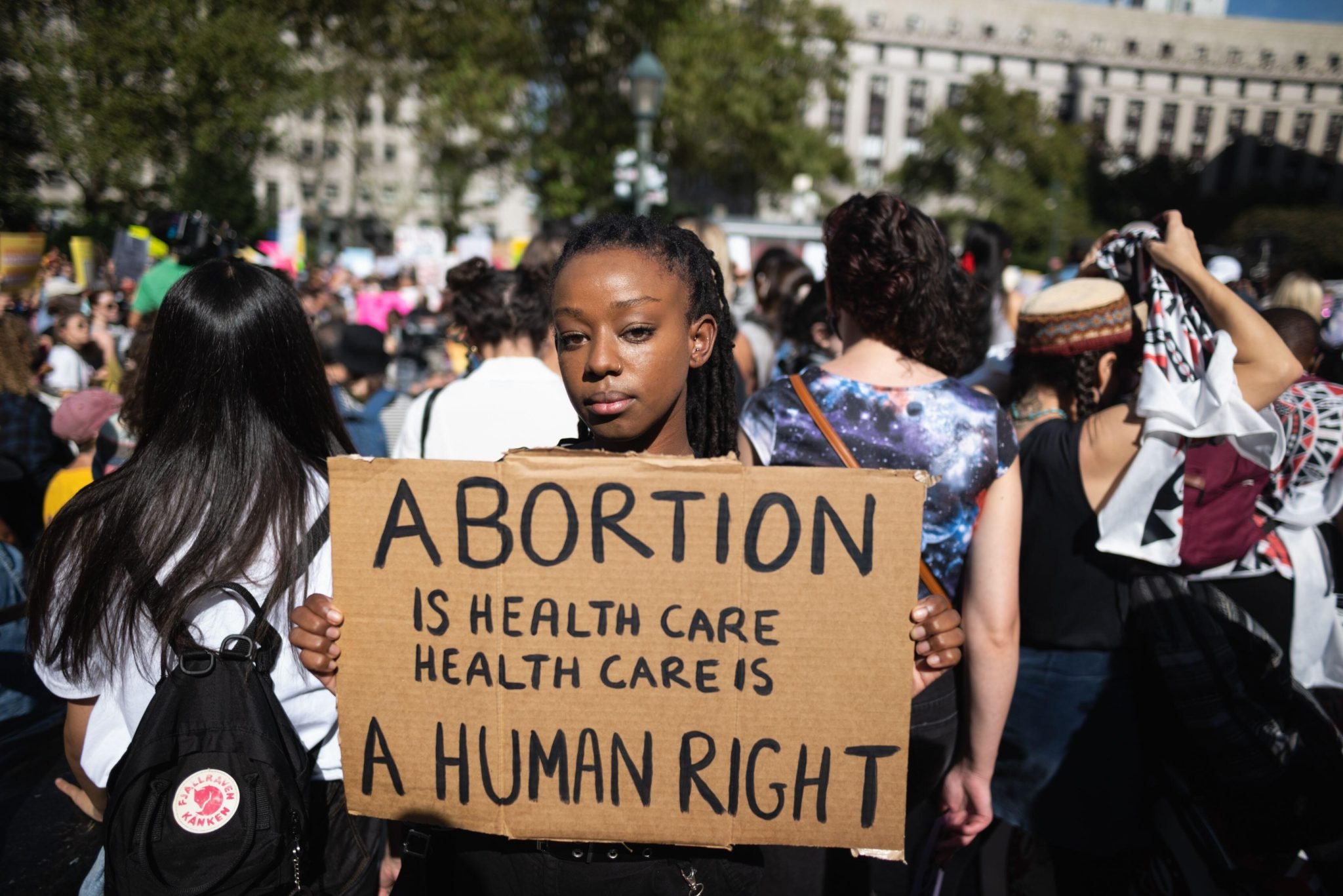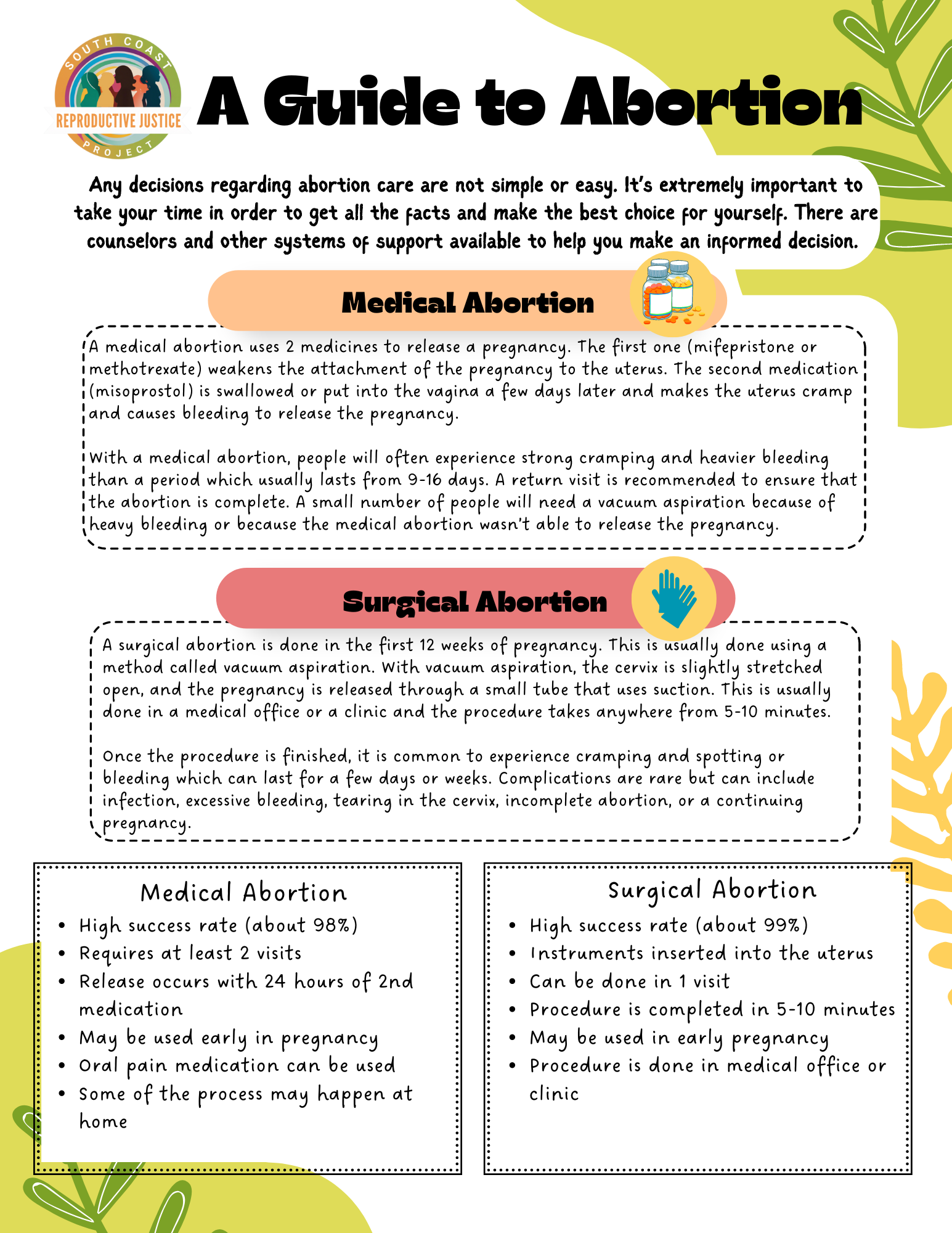SOUTH COAST REPRODUCTIVE JUSTICE PROJECT
PROYECTO DE JUSTICIA REPRODUCTIVA DE LA COSTA SUR
SOUTH COAST REPRODUCTIVE JUSTICE PROJECT PROYECTO DE JUSTICIA REPRODUCTIVA DE LA COSTA SUR
The South Coast Reproductive Justice Project works alongside communities and partners to dismantle barriers to affirming healthcare and to advance equitable access to reproductive and gender-affirming care across Coos and Curry Counties.
Our work is grounded in the powerful framework defined by SisterSong:
Reproductive justice is the human right to maintain personal bodily autonomy, have children, not have children, and parent children in safe and sustainable communities.
This means our commitment goes far beyond access—it is about ensuring dignity, safety, autonomy, and full liberation for every person navigating reproductive decisions and systems of care.
We center the lived experiences and leadership of Black, Indigenous, and People of Color (BIPOC) and 2SLGBTQIA+ communities, because they are the most impacted by systemic injustice—and the most essential to transformative solutions. In rural spaces like Coos and Curry Counties, where isolation, stigma, and under-resourcing are real, this work is not only vital—it is urgent.
We are committed to building community-rooted systems of care that honor identity, protect choice, and affirm life. This is about more than surviving—it’s about thriving, together.
-

Free Menstrual and Sexual Health Products
We provide free menstrual and sexual health products in our office. These products include tampons, pads, period underwear, pregnancy tests, plan b, condoms, and sexual lubricant.
1934 Newmark Street Suite B, North Bend, OR Open 10-5 Mon-Friday unless noted on our social media and door.
-

Professional Development and Community Trainings
The Reproductive Justice Project is a part of the South Coast Health Equity Coalition, where we collectively provide trainings and education on Reproductive Justice 101, Oregon Reproductive History, Foundations of DEIJB (Diversity, Equity, Inclusion, Justice, and Belonging), and Aspiring Allyship for any inquiries email Zaria@southcoastequity.org.
-

Free Literature & Community Library
Our free library is more than a collection of books — it’s a reflection of the community it serves. Rooted in equity and belonging, the library uplifts the voices of Black, Indigenous, and People of Color and celebrates 2SLGBTQIA+ stories across generations.
1934 Newmark Street Suite B, North Bend, OR Open 10-5 Mon-Friday unless noted on our social media and door.
-

Scholarships
The Reproductive Justice project provides seasonal scholarships to Medical and Behavioral Health students that reside in Coos and Curry County.
Apply today / Solicita hoy: tinyurl.com/4rjmvasb
📧 Questions / Preguntas: Zaria@southcoastequity.org -

Mutual Aid
We see mutual aid as being in solidarity with others and meeting someone’s needs as meeting our own. We currently have mutual aid available for students in Coos and Curry County.
Mutual Aid is to provide assistance with anything that may be hindering these communities from focusing on their education. Mutual aid can also involve reimagining the social fabric, where people see themselves in solidarity with others and meeting someone’s needs as meeting their own. Whether it be groceries, rental or utility assistance, medical supplies, gas, etc.
-

The Lotus Collective
A monthly support space for individuals navigating menopause, centering women, trans, and gender expansive people across all stages of the experience.
Our first meeting September 20th, 2025 9am Pacific Eastern Time - All of the meetings will be virtual register below:
We’ve created a private Facebook group to help us stay connected between the collective’s monthly meetings. The group is moderated by staff and leadership members to ensure it remains a safe and supportive space for all participants.
-

Get Care from a Birth Doula — At No Cost
Did you know that as an Oregon Health Plan (OHP) member in Coos or Curry County, you can receive support from a professional Birth Doula at no cost?
What is a Birth Doula?
A Birth Doula provides information, emotional support, and physical comfort during your pregnancy, childbirth, and after your baby is born. While they are not medical providers like midwives, doulas offer invaluable support for your overall well-being.
Contact Brandy Hille, CHW & THW Liaison:
thwprogram@advancedhealth.com
541-269-7400 ext. 357General Questions:
541-269-7400 | 1-800-264-0014 | TTY: 711 or 800-735-1232
customerservice@advancedhealth.com




